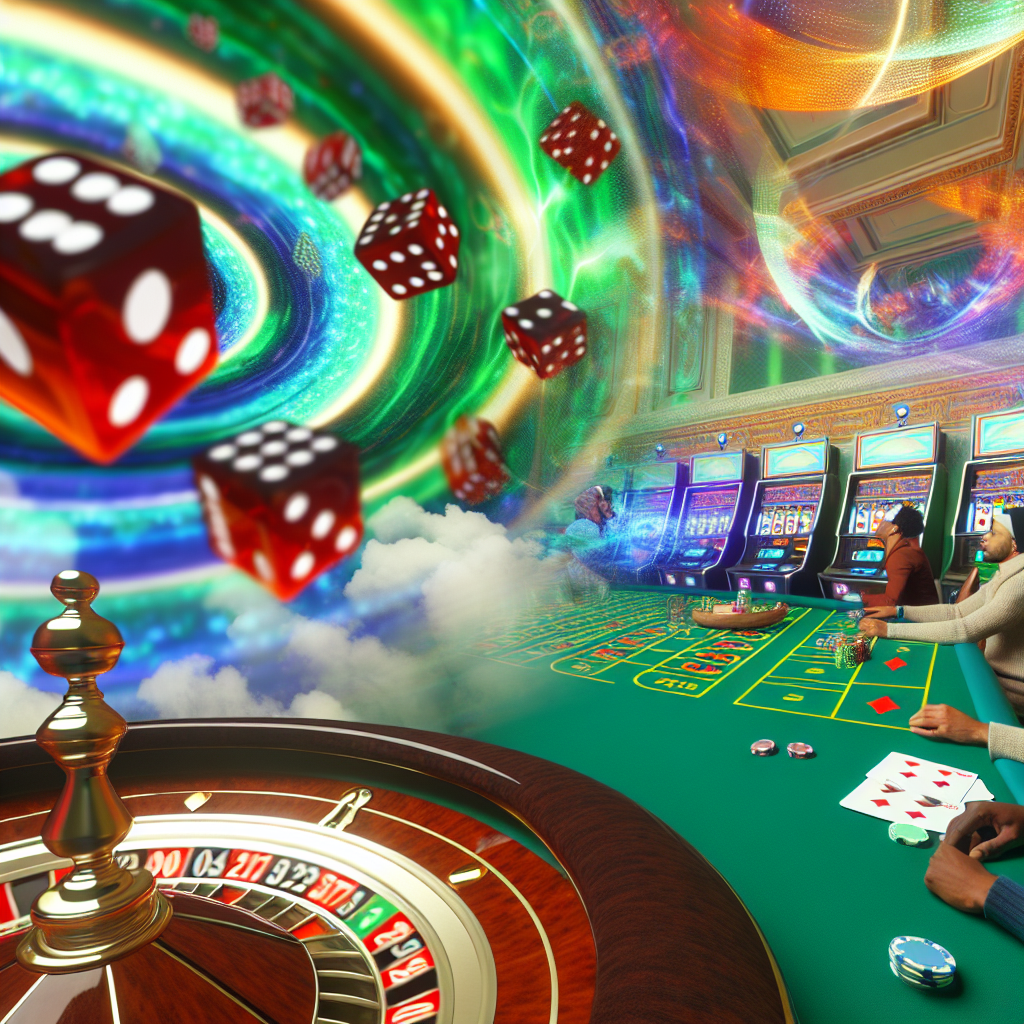
Risks, Caveats, and Neutral Guidance
The allure of dreaming unfolds a peculiar path for those intrigued by the concept of lucid dreaming gambling. While the idea of manipulating one’s dreams to experience the thrill of casino games is enticing, it raises questions about the nature of risk and reward. In the realm of dreams, stakes are ethereal, yet the psychological impact can be profound. Dreamers may find their subconscious playgrounds mirroring real-world casino environments, complete with the highs and lows of winning and losing.
However, the implications of such experiences extend beyond mere fantasy. A key concern is whether frequent immersion in this dreamscape could affect one’s real-life gambling behaviors or perceptions. For some, the vividness of these simulated experiences might blur the line between reality and dreams, potentially leading to risky behaviors in waking life. This prompts a crucial inquiry: How might these nocturnal adventures influence one’s approach to actual gambling?
Lucid Dreaming Gambling: Frameworks and Applications
Lucid dreaming, the art of being consciously aware within one’s dreams, offers a unique canvas for exploring gambling scenarios without tangible consequences. Enthusiasts of lucid dreaming gambling often report harnessing their dreams to practice strategies or simply indulge in the thrill of risk-free bets. The frameworks for such adventures vary, with dreamers employing techniques like reality checks and dream journaling to enhance their control over nightly escapades.
In practice, this form of dream play serves as a sandbox for creativity and exploration. While some may focus on perfecting poker faces or simulating slot machine spins, others might delve into creating entirely new games, limited only by the imagination. Yet, it’s essential to maintain a balanced perspective, acknowledging that these dream experiences, while vivid, remain distinct from real-world gambling dynamics.
Scientific research indicates that lucid dreaming is linked to enhanced cognitive control and decision-making processes, both of which are central to gambling behaviors. For instance, a study by Neider et al. found that participants capable of inducing lucid dreams performed better on the Iowa Gambling Task, a well-established measure of risk–reward decision-making (PMC). Similarly, Baird et al. (2018) demonstrated that frequent lucid dreamers showed increased functional connectivity in regions such as the anterior prefrontal cortex, areas associated with self-awareness, working memory, and higher-order cognition (Nature). These findings suggest that the simulated experiences within lucid dreams may engage neural mechanisms relevant to real-world gambling strategies, even though no actual financial stakes are involved.
Lucid Dreaming Gambling: Signals, Use Cases, Guardrails
Signals of effective lucid dreaming often include the ability to recall dreams vividly and manipulate dream scenarios. For those engaging in lucid dreaming gambling, these signals are indicators of successful immersion in dream-based gaming. Use cases in this context range from casual exploration to more focused endeavors, like testing strategies or even exploring emotional responses to wins and losses without financial risk.
To navigate this dream realm responsibly, establishing personal guardrails is advised. Dreamers might set intentions before sleep, such as focusing on enjoyment rather than competition, to maintain a healthy relationship with both their dream and waking lives. Additionally, keeping a dream journal can aid in distinguishing dream experiences from reality, ensuring that the thrill of nocturnal gambling does not overstep into daily life.
What is lucid dreaming?
Lucid dreaming is the experience of being aware that you are dreaming, which may allow you to control the dream’s events.
Can you simulate a casino experience in a lucid dream?
Yes, in a lucid dream, you can create and experience a casino environment, allowing you to play games and interact as if you were in a real casino.
How realistic are gambling experiences in lucid dreams?
The realism of gambling experiences in lucid dreams depends on the dreamer’s imagination and ability to maintain focus; some report vivid, lifelike experiences, while others find them more abstract.
Is it possible to practice gambling strategies in lucid dreams?
Yes, lucid dreaming can provide a platform to practice gambling strategies, though the effectiveness may vary due to the dream’s imaginative nature.
Can lucid dreaming help improve your real-life gambling skills?
Lucid dreaming might aid in mental rehearsal, potentially enhancing decision-making skills, but it cannot replicate the true randomness and emotional factors of real-life gambling.
What are the limitations of experiencing gambling in lucid dreams?
Limitations include the lack of true randomness, potential difficulty in maintaining focus, and the absence of real stakes, which can affect the authenticity of the experience.
Prepared by the editorial staff at CasinoVVV.com, committed to providing professional gaming analysis and global casino news for our readers.
Read also: Why Millennials Are Redefining Casino Tourism • AI Technology Shaping Future Casinos
